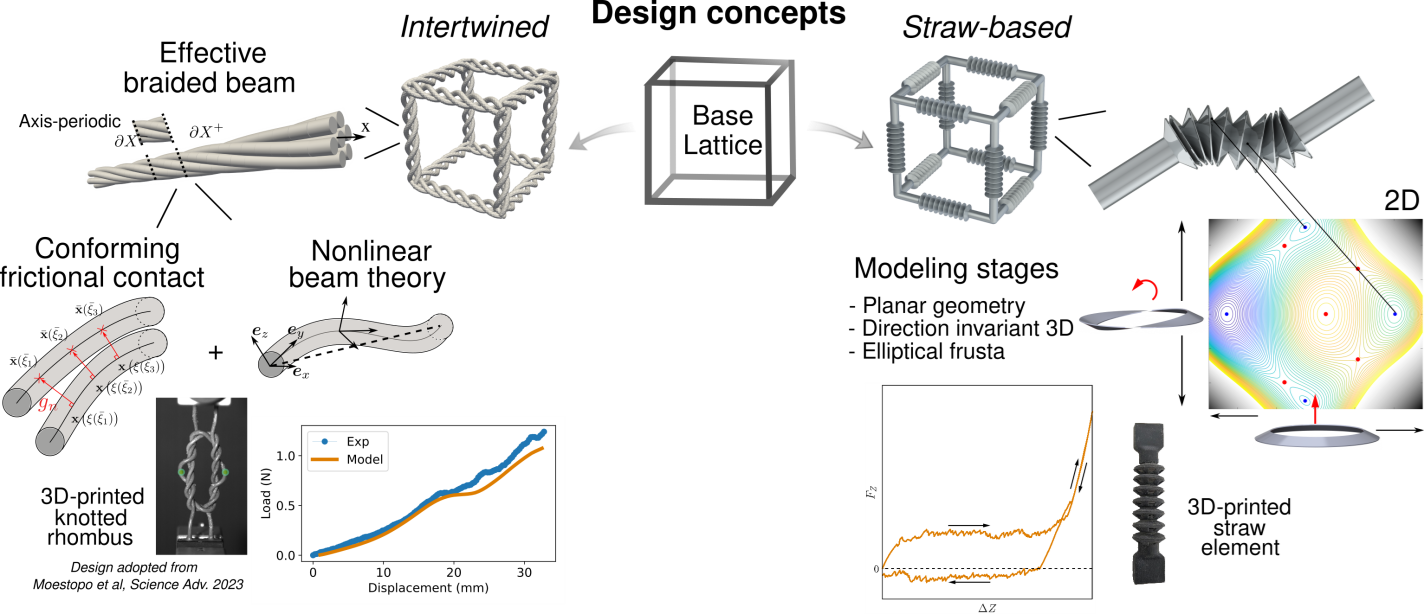New Doctoral Positions: Architected Materials
Over the next four years, the Mechanics and Materials Laboratory will investigate the mechanics of intertwined and straw-based architected materials - supported by the Swiss National Science Foundation.
The objectives of this research are (i) a detailed physical understanding of the mechanics of intertwined and straw-based architected materials through novel theoretical and computational techniques, (ii) the optimization of their nonlinear response, and (iii) the experimental realization of optimized designs.
The research of intertwined lattices, led in collaboration with Dr. Konstantinos Karapiperis, deals with a new class of architected materials with great potential for tunable energy absorption and stable reconfiguration. They are formed by a network of slender elements interacting through frictional contact and derive their properties from the geometry and topology of this network. We will develop an efficient computational framework, validated by experiments on 3D-printed intertwined lattices, to predict their nonlinear response. This framework will be utilized in exploring the design space and establishing useful structure-property relations. In conjunction with novel machine learning algorithms, these will lead to optimal designs that capitalize on the unique contact-induced dissipation and large deformation capabilities of those architectures.
The study on straw-based truss metamaterials, led in collaboration with Dr. Dotan Ilssar, introduces multistability to truss metamaterials by employing novel struts inspired by drinking straws. These multistable struts are modelled as serial interconnections of multistable cells; each can be stabilized in two axisymmetric configurations as well as two bent states in 2D and up to an infinite number of bent configurations in 3D. The myriad of multiaxial stable configurations achievable by straw-inspired struts and the structures they form allow post-production change of shape and properties. These properties can be vital for shape-morphing structures having several operative configurations, as well as metamaterials with configuration-dependent mechanical properties. We will develop a comprehensive finite element scheme to simulate the nonlinear behavior of straw-based truss metamaterials, which will be validated experimentally and utilized for machine learning-based optimization towards as-designed mechanical functionality and minimal actuation reconfiguration.
With the growing adoption of architected materials in technological applications ranging from impact protection and vibration isolation to soft robotics and functional textiles, this research promises new computational tools and experimental designs, to be used in expanding the state-of-the-art and enriching the design space of architected materials – in collaboration with Dr. Kaoutar Radi.
Motivated prospective PhD students are encouraged to apply here:

